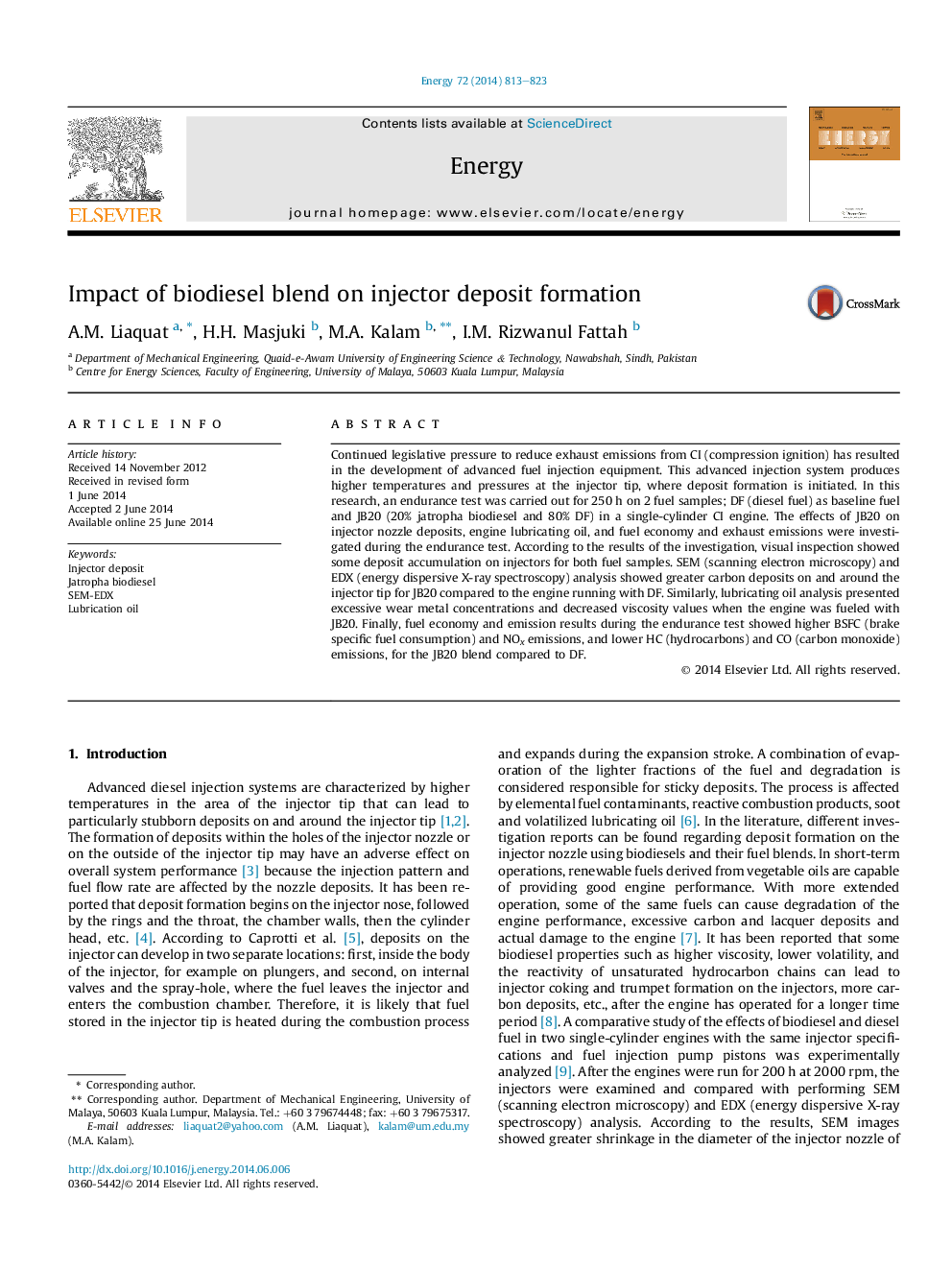| Article ID | Journal | Published Year | Pages | File Type |
|---|---|---|---|---|
| 8077557 | Energy | 2014 | 11 Pages |
Abstract
Continued legislative pressure to reduce exhaust emissions from CI (compression ignition) has resulted in the development of advanced fuel injection equipment. This advanced injection system produces higher temperatures and pressures at the injector tip, where deposit formation is initiated. In this research, an endurance test was carried out for 250Â h on 2 fuel samples; DF (diesel fuel) as baseline fuel and JB20 (20% jatropha biodiesel and 80% DF) in a single-cylinder CI engine. The effects of JB20 on injector nozzle deposits, engine lubricating oil, and fuel economy and exhaust emissions were investigated during the endurance test. According to the results of the investigation, visual inspection showed some deposit accumulation on injectors for both fuel samples. SEM (scanning electron microscopy) and EDX (energy dispersive X-ray spectroscopy) analysis showed greater carbon deposits on and around the injector tip for JB20 compared to the engine running with DF. Similarly, lubricating oil analysis presented excessive wear metal concentrations and decreased viscosity values when the engine was fueled with JB20. Finally, fuel economy and emission results during the endurance test showed higher BSFC (brake specific fuel consumption) and NOx emissions, and lower HC (hydrocarbons) and CO (carbon monoxide) emissions, for the JB20 blend compared to DF.
Related Topics
Physical Sciences and Engineering
Energy
Energy (General)
Authors
A.M. Liaquat, H.H. Masjuki, M.A. Kalam, I.M. Rizwanul Fattah,
